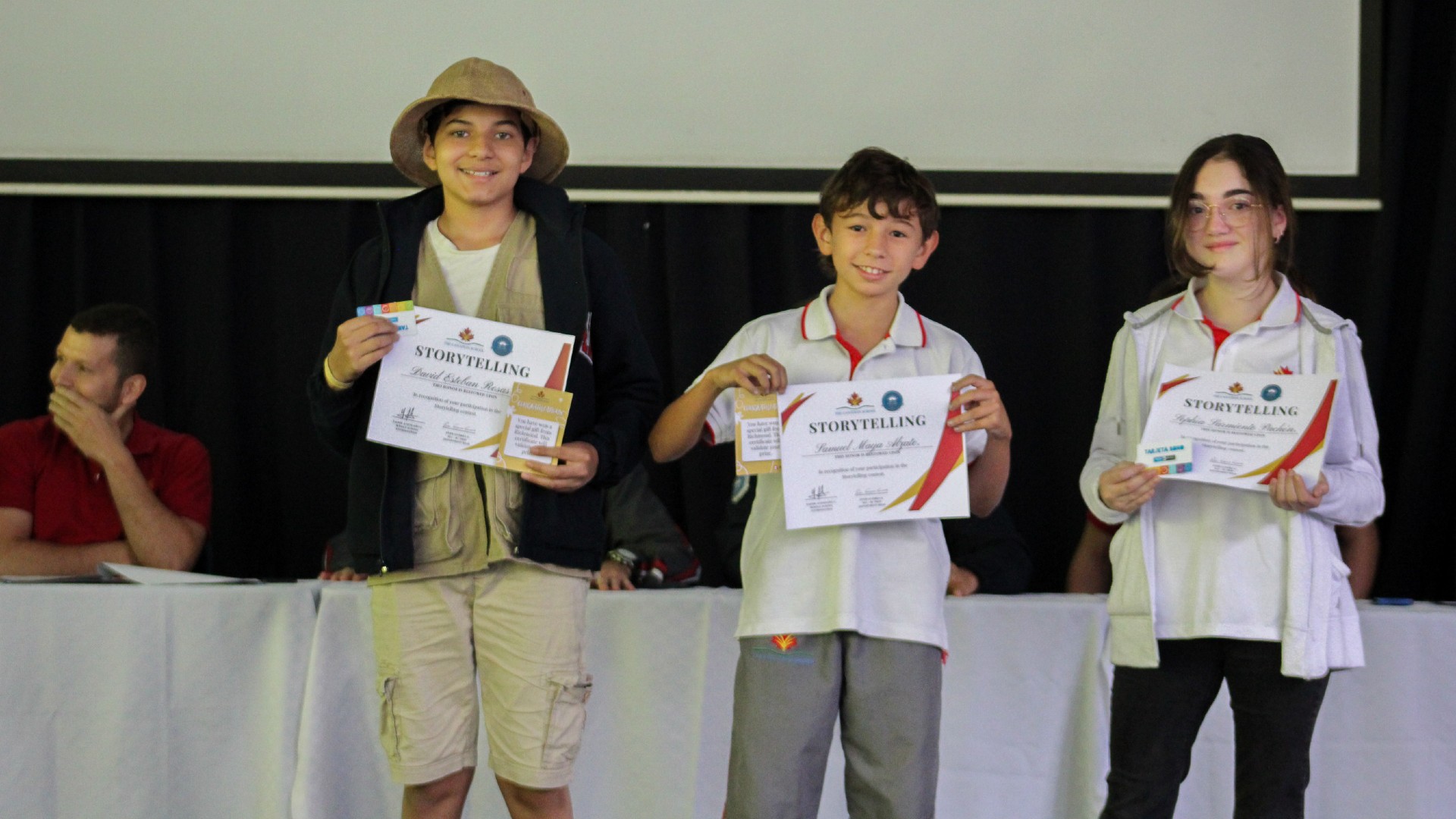By Víctor Andrés Calderón Acosta
Middle School Teacher
As a new teacher at the Canadian School, I faced difficulties when teaching history of Colombia in English due to a lack of materials in this language. It was challenging to find textbooks and resources to engage my students effectively. Instead of giving up, I decided to create my own materials by designing activities that foster analysis and critical thinking skills. I shared stories and used videos to bring Colombian history to life. Although it was tough, my students’ enthusiasm grew, and they became more confident in using English while developing a deeper appreciation for Colombia’s complex past.
In this order of ideas, as a social studies teacher who has taught Colombian history in English, I have witnessed the transformative power of integrating civic competencies into the curriculum. This article aims to emphasize the importance of fostering civic competencies when teaching history in English, particularly in the context of Colombian history by considering the challenges that are involved at the time of teaching this matter in a second language.
Understanding Civic Competencies
Civic competencies encompass a range of skills, knowledge, and attitudes that enable individuals to engage with society, exercise their rights and responsibilities, and contribute to the common good. By intertwining civic education with the teaching of Colombian history in English, we empower students to develop critical thinking, empathy, respect for diversity, and a sense of civic responsibility.
Promoting Critical Thinking
Teaching Colombian history in English provides an opportunity to cultivate critical thinking skills among students. By analyzing historical events, interpreting primary sources, and engaging in debates, students can develop the ability to question, evaluate evidence, and form well-reasoned opinions. This critical thinking not only deepens their understanding of Colombian history but also equips them with the skills necessary to engage in informed civic discourse, challenge injustice, and actively participate in matter that affect us as society by comparing the facts of the past with the challenges of our present.
Fostering Empathy and Respect for Diversity
Colombian history is rich in diversity, encompassing indigenous cultures, colonial influences, and the struggles for independence and social justice. When this matter is taught in English, it allows students to explore different perspectives, promoting empathy and respect for diverse cultures and experiences. By examining historical events through a multicultural lens, students develop an appreciation for the complexities of Colombian society and foster a sense of unity amidst diversity, preparing them to embrace and respect different viewpoints in the global community where we live nowadays.
Cultivating Civic Responsibility
Teaching Colombian history in English presents an opportunity to foster a sense of civic responsibility in students. By exploring the hard struggles and triumphs of Colombian society, students develop an understanding of the challenges faced by their fellow citizens. Through discussions, projects, and community engagement initiatives, they can actively explore solutions to contemporary issues and take ownership of their role as agents of positive change. By promoting a sense of civic responsibility, students become aware of their rights and obligations, preparing them to contribute meaningfully to their local and global communities in order to live in a society in peace.
Preparing Global Citizens
In an interconnected world, the ability to engage with diverse cultures, navigate complex global issues, and collaborate across borders is essential, for example, the collaboration with our neighbor countries and the historical roots that unite us. By teaching Colombian history in English while integrating civic competencies, we prepare middle school students to become active participants in the global world. They develop the skills to understand, appreciate, and respect cultural differences, and they are provided with the knowledge and critical thinking abilities to address global challenges with empathy and an informed perspective. This global citizenship mindset enables students to generate connections, build bridges, and contribute positively to a world in which the differences are respected.
Challenges
However, creating materials for teaching Colombian history in English have its own set of challenges. With limited existing resources, I had to rely on extensive research and creativity to develop materials that would engage my students with thinking skills. It required extra effort and dedication to ensure that the materials were linguistically accessible and culturally relevant.
Additionally, incorporating civic competencies into the teaching of Colombian history add even more complexity. Teaching civic responsibility, critical thinking, and empathy in a language that was still being mastered by the students required careful planning and adaptation. I had to design activities and discussions that would encourage active participation and foster the development of these competencies while using English as the medium of instruction.
The scarcity of materials in English for teaching Colombian history not only highlighted the need for more resources but also emphasized the importance of bridging the gap between language learning and civic education. By creating materials and activities that merge both aspects, we can provide students with a holistic learning experience that prepares them to be informed, engaged, and responsible global citizens.
In conclusion, teaching history of Colombia in English with a focus on civic competencies presents both challenges and opportunities. The scarcity of materials needs the creation of relevant resources, which requires extra effort and adaptability from us as teachers, but the benefits in terms of student engagement, language development, and civic empowerment are worth the endeavor. By addressing these challenges and advocating for the development of more materials, we can enhance the teaching of Colombian history in English and equip our students with the skills and knowledge needed to be active participants in our society, in other words, integrating civic competencies into the teaching of Colombian history in English it is an interesting opportunity to promote critical thinking, to enhance empathy, respect for diversity, and to cultivate civic responsibility, so that we can empower middle school students to become informed, engaged, and responsible global citizens who understand that the past errors should not be repeated in order to build a better future for our country.





